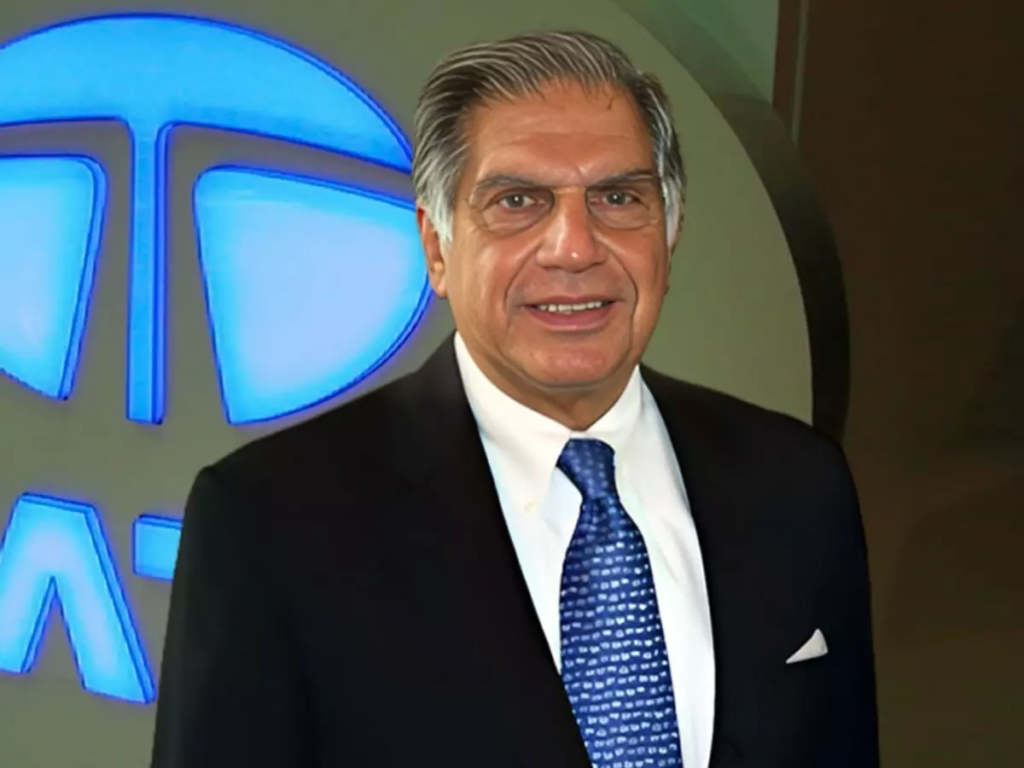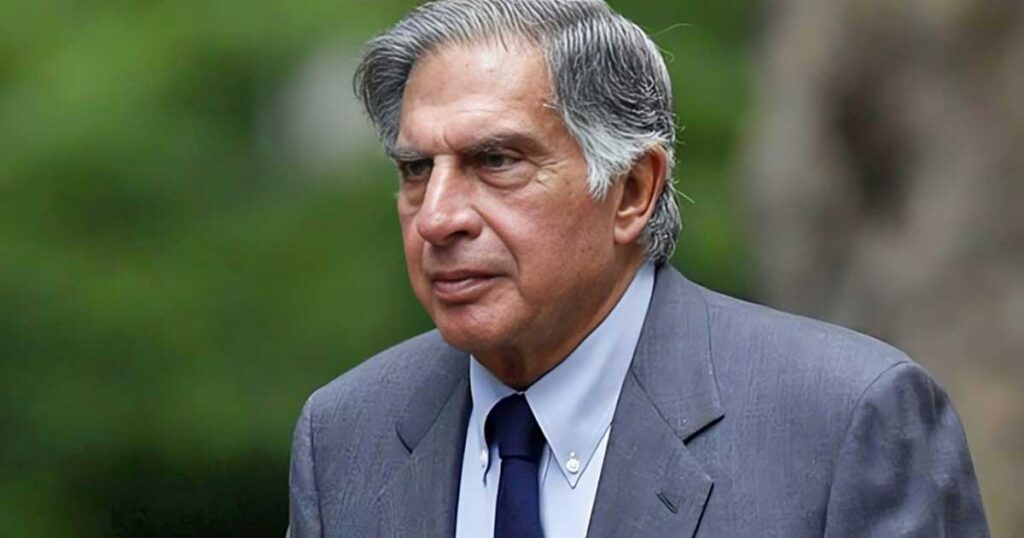Ratan Tata, one of India’s most esteemed business leaders, has made an indelible mark on the global corporate landscape. Born on December 28, 1937, he became the chairman of Tata Sons in 1991, steering the Tata Group, a conglomerate with interests ranging from steel to IT, through transformative changes. His leadership style, business acumen, and philanthropic vision have inspired countless entrepreneurs and business leaders worldwide.

Early Life and Education
Ratan Tata was born into the prominent Tata family, known for its rich legacy in business and philanthropy. He completed his schooling in Mumbai and went on to study at Cornell University, where he earned a degree in architecture. He later attended the Harvard Business School, completing the Advanced Management Program. This robust educational background laid the groundwork for his strategic thinking and innovative approach to business.
The Tata Legacy
The Tata Group, founded in 1868 by Jamsetji Tata, has always been synonymous with integrity, innovation, and social responsibility. Ratan Tata inherited this legacy and sought to modernize and globalize the group during his tenure. Under his leadership, the Tata Group expanded its operations significantly, acquiring several international companies, including Jaguar Land Rover and Corus Steel, thus marking its presence on the global stage.
Strategic Vision and Innovation
Ratan Tata’s tenure is characterized by bold decisions that often defied conventional wisdom. One of the hallmark achievements was the launch of the Tata Nano in 2008, aimed at providing an affordable vehicle for the masses. Despite the challenges faced in its production and marketing, the Nano symbolized Tata’s commitment to innovation and inclusivity.
Additionally, Tata’s focus on sustainable business practices has reshaped how corporations perceive their responsibilities. Initiatives in renewable energy, water conservation, and sustainable agriculture reflect his belief that businesses should operate with a purpose beyond profit.
Corporate Social Responsibility
Ratan Tata’s approach to business has always intertwined with social responsibility. The Tata Group is renowned for its commitment to community development, education, healthcare, and rural development. Ratan Tata has often articulated that for the Tata Group, profits are essential, but they are not the sole measure of success. The Group has consistently reinvested a significant portion of its profits into social causes, setting a benchmark for corporate responsibility.
The Tata Trusts, which hold a majority stake in Tata Sons, fund various initiatives aimed at improving healthcare, education, and livelihoods across India. Ratan Tata’s vision for a better society has made a lasting impact, demonstrating that business and social welfare can coexist harmoniously.
Leadership Style
Ratan Tata’s leadership style is characterized by humility, openness, and a collaborative approach. He believes in empowering his team members and fostering an environment where creativity and innovation can thrive. His ability to listen, empathize, and connect with people at all levels has earned him immense respect.
Moreover, Tata’s focus on long-term goals over short-term gains exemplifies a forward-thinking mindset. He has often emphasized the importance of integrity and ethical leadership, believing that businesses should be conducted in a manner that earns public trust.
Challenges and Resilience
Tata’s journey has not been devoid of challenges. The global economic downturn, intense competition, and criticism over certain strategic decisions posed significant hurdles. However, his resilience and ability to adapt have been pivotal in navigating these obstacles.
For instance, the acquisition of Corus in 2007 was met with skepticism due to the economic environment, but Tata’s foresight paid off, strengthening the Group’s steel business. His ability to turn challenges into opportunities has become a hallmark of his leadership.
Legacy and Future
Ratan Tata stepped down as chairman of Tata Sons in 2012, leaving behind a legacy of innovation, social responsibility, and ethical business practices. His influence, however, continues to resonate within the Tata Group and the broader business community.
Post-retirement, Tata has remained active as an angel investor and mentor for startups, championing entrepreneurship and innovation in India. His focus on nurturing young talent and supporting innovative ideas is indicative of his belief in the potential of the next generation.
Ratan Naval Tata: The Visionary Leadership of Ratan Tata
Ratan Tata’s journey exemplifies the essence of visionary leadership. His commitment to innovation, social responsibility, and ethical practices has not only transformed the Tata Group but has also set a standard for businesses globally. As he continues to inspire future leaders, his legacy will undoubtedly shape the landscape of corporate governance and social responsibility for years to come.
In a world increasingly focused on profit maximization, Ratan Tata stands as a beacon of hope, illustrating that business can be a force for good, driving not just economic growth but also social change. His life’s work serves as a reminder that true leadership is about serving others, fostering a sense of community, and making a positive impact on society.


